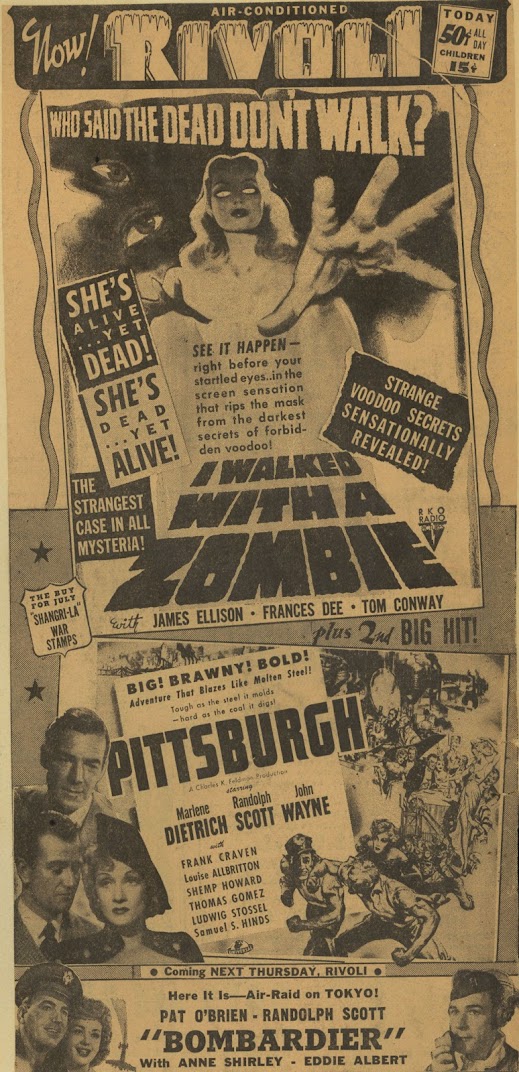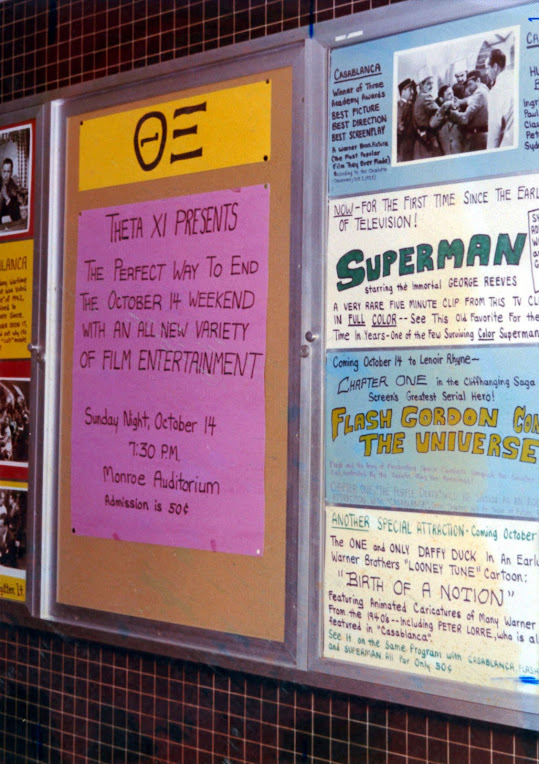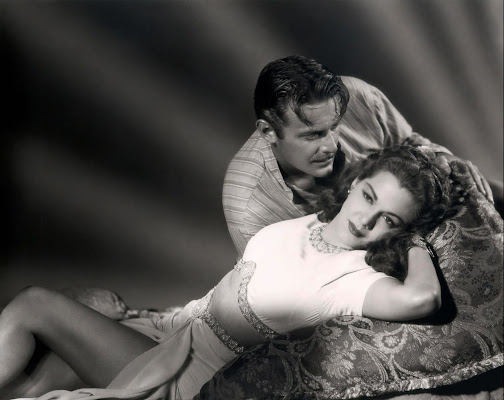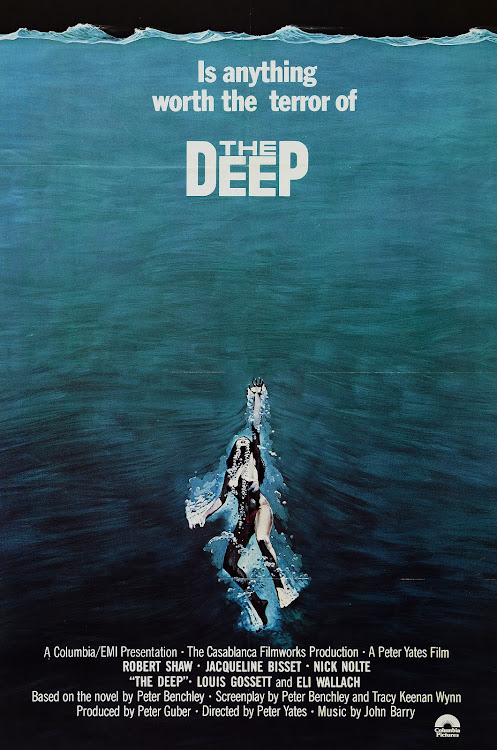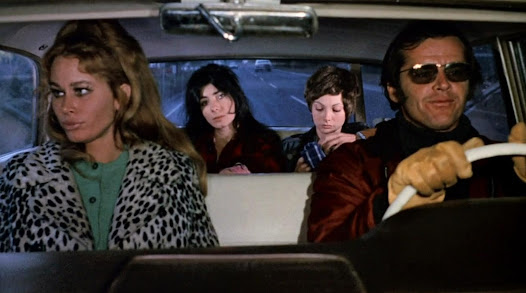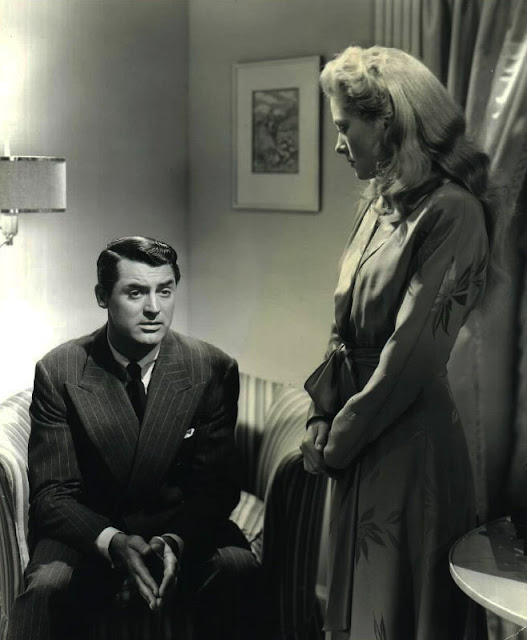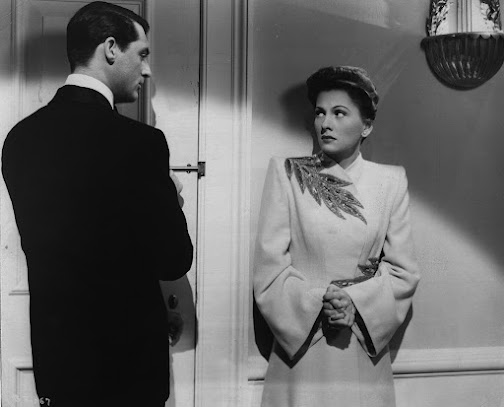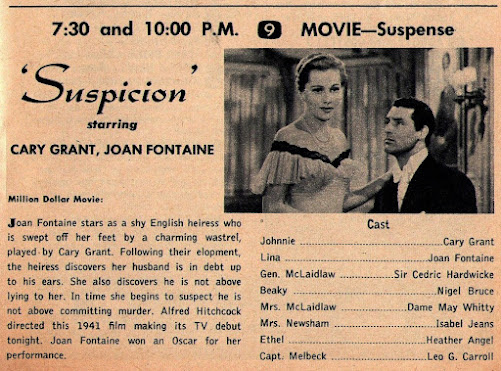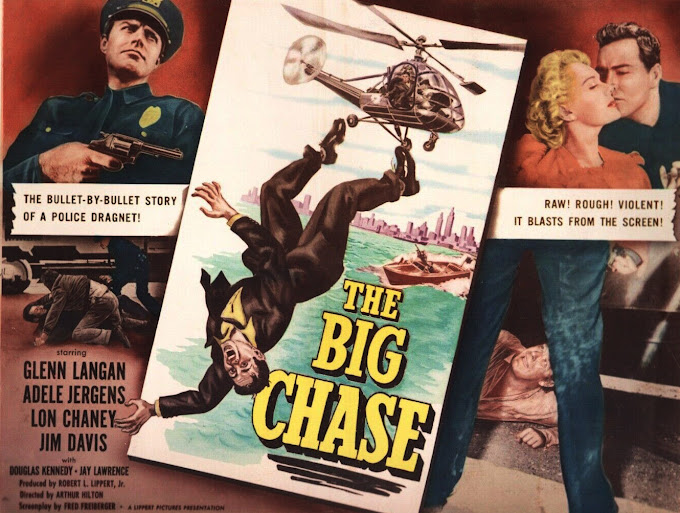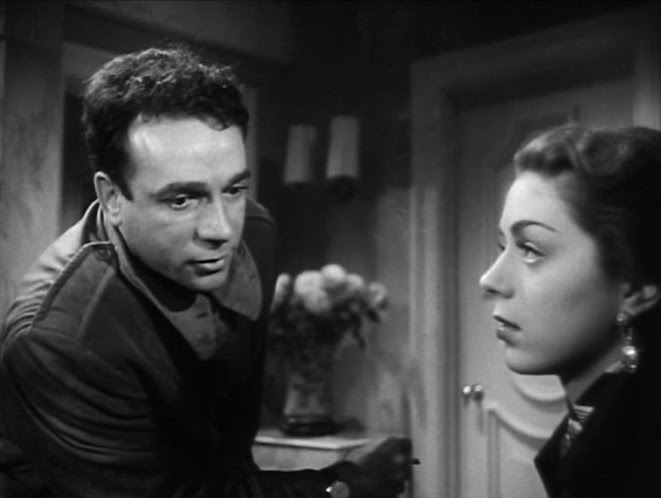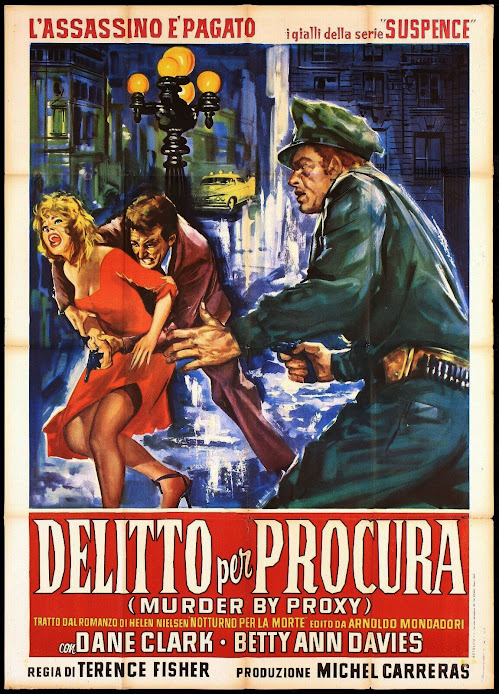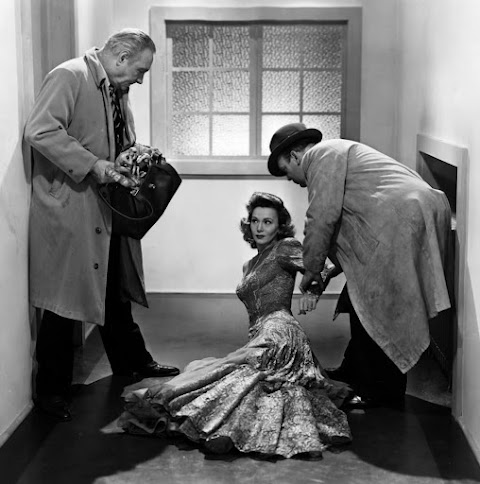Parkland Picks with Popcorn #2
Pop Goes: It Came from Outer Space, I Walked with a Zombie, The Adventures of Superman, and Ali Baba and the Forty Thieves
IT CAME FROM OUTER SPACE (1953) --- Freak tent that was 3-D moviegoing made fad impression, then withdrew, a process repeated since fifties vogue, most recent before televisions stopped being equipped to play depth. What was industry trying to tell us? Will my 3-D discs become useless for there being no hardware to host them? Universal is lately out with 4K of It Came from Outer Space, but not 3-D in 4K. Maybe technology does not exist to support that. I can’t go back to flat after seeing a feature deep. That goes for Space, the Creature duo, any of them. It Came from Outer Space needs 3-D for being much the flatter without it. We never board the alien craft and aliens themselves are too shapeless and ugly to please. The build-up is effective for trading on fear 1953 had of invasion-from-without, things not of this earth a concern to rival what Reds had afoot. Science-fiction was topical also during short window when folks figured saucers had crashed or been captured and being hid from us (well, were they?). Sci-fi encounter of its own was 3-D being projected, seldom got right it seemed, too few operators skilled enough to keep right and left prints in harmony. Engagements curdled with depth seen sudden as shallow, theatres relieved to chuck glasses plus the system. Seventies scour of the Liberty found scores of specs shoved to a corner, me not caring enough even to take samples. I venture It Came from Outer Space, the 3-D lot in fact, looks leagues better than any of it did when new. Some of us chanced a 1981 revive of Space plus the first Creature in Concord, NC, enough to make anybody exit depth for keeps. Concord's I think was the red-green deal, or over/under, who cares which, it blew either way. You barely saw the too-dim image, only good thing Richard Carlson swinging a telescope round and us nearly conked by it. 3-D led with chins until digital came to decades-later rescue, It Came from Outer Space finally giving value for novelty promised when new, but taking all this time to fulfill.
I WALKED WITH A ZOMBIE (1943) --- Happy day was this Lewton favorite turning up on TCM with a new transfer, giving us glimpse of what eventual Blu-Ray might look like. Older prints of Val Lewton films came more to matter of imagining beauty gleaned off long ago nitrate surface. I Walked with a Zombie stayed in theatre circulation, at least here in NC, right to the mid-sixties, a Winston-Salem downtown venue using it to prop a live appearance by “Dr. Evil” of Charlotte late night fame, the 1964 booking a last I found for Zombie before a mainstream audience as opposed to art house or “revival” situations. I Walked with a Zombie had earlier supported RKO genre films on reissue, second to The Body Snatcher in 1952 and King Kong in 1956, Zombie more chaser than classic on these occasions with exhibitors complaining it did not yield chills their audience expected. Perceived weak sisters could clear a house of youth that might otherwise stay for repeat of King Kong. Zombie and paired-with-Kong in 1952 The Leopard Man helped empty seats so more paid admissions could come in. We love Lewton, but his output fell, if gradually, after Cat People in terms of rentals and crowd satisfaction, though critics did champion the producer and would continue to. I Walked with a Zombie has nice story values and a halfway highlight where women walk to a voodoo ceremony, vivid stuff for placement wherever art of Val Lewton is celebrated. I read where Frances Dee took gracious applause for starring in I Walked With a Zombie, but privately confided that fame of the show was mystery to her.
THE ADVENTURES OF SUPERMAN --- Two episodes recommended by a friend. I need guidance to these, for it is too many years since watching on afternoon TV. Such occasion could be tense where I argued at age five for The Mickey Mouse Club and my brother insisted on Superman, only one set in the house to supply either. Was Superman too adult for me? By ten, I was ready, or maybe lure was George Reeves as paternal figure, which he widely was for mass of boy (and girl?) watchers. In fact, my sister sent away for Superman club membership spawned by the series for which she got a nice card and booklet, circa ’53 or so. First out of the DVD box for me was Night of Terror, initial season entry when harder-edge was maintained and Phyliss Coates was Lois Lane. She gets knocked around lots by heavies (for real it is said, bump on her head big as a turkey egg). Superman doesn’t show up until a last critical moment to give baddies a pasting. What if Superman hit a guy too hard and killed him? That had to be an issue for the Krytonian, a need always to pull punches lest he deal lethal blows. Clarity of digital permits us to spot doubles for Reeves. Did they borrow his costumes, or was there a closet filled with stuntman suits? Bullets bounce off Superman, but what if one ricocheted and hurt Lois or Jimmy? I’m taking these too literally. Superman had a likeable enough ongoing cast so it mattered less if he seldom did truly super things. How, with costs so stringent low? That was part of the show’s charm too.
The color episode I watched was Superman’s Wife, her played by Joi Lansing, and yes, this was reason for picking it. Superman in color had a cobalt effect when first encountered that way in the mid-sixties, mainly because too few knew (anyone?) that episodes had been rendered that way (early runs were resolutely B/W). Just seeing the suit with its red, yellow, blue was thrill aplenty, even if content fell down from the first two seasons. At right is a 1973 display for a Greenbriar college program which included a five or so minute color clip I had come across from a Superman episode, novelty enough to flash upon an auditorium screen and set students upon wing of nostalgia. I like how Clark interacts with Daily Planet colleagues, then as Superman becoming the authority figure, even impatient when Lois proves dense as to water pressure and its effect on diving bells. LL by now was Noel Neill. She is motherly to Jimmy, critical of Clark, jealous, almost teary at prospect of Superman marrying Joi. There is no ceremony, so we assume no vows were exchanged, but mere possibility of such a thing galvanized viewers at the time. Per before, not necessary for S to do s things to engage us. It was personalities that sold these shows. Had anyone but Reeves been aboard, I don’t think Superman would have lasted long, because then kids would insist on action, and flying, and more action. Adults liked Superman according to expert Michael Hayde. Character and interplay appealed in lieu of dollars (not) spent, Reeves bursting through cardboard walls an endearing if not convincing ritual. Superman has been done too much, and by too many, to allow for much memory of George Reeves and the fifties series. I can’t see fans today canvassing all of episodes and committing situations and dialogue to memory. Is it reasonable to expect they would? Chance of Warner spend to upgrade The Adventures of Superman to Blu-Ray seems remote. We’re lucky enough to have entirety of the series on standard DVD.
ALI BABA AND THE FORTY THIEVES (1943) --- Suppose clouds lifted and Hollywood’s star system was somehow restored. What sort of vehicles might spotlight fresh personalities? (I read of late that there are no real “stars” left under the age of sixty) Tar pits these days are referred to instead as “challenges.” Might a blighted industry, specifically Universal, remake Ali Baba and the Forty Thieves? Could be a swell idea, even if absurd on its face, but no more so than Disney throwing $300 million at The Marvels and facing loss of it all. A Classic Era was where if you needed stars, you’d simply create them, or take a familiar face, if vaguely so, and confer fame to same. The Montez/Hall series was brilliant application of a simple and sure principle. Arabian Nights used applicants that were Maria Montez (a starlet, if that), Jon Hall (minor beach wear up to then), Sabu (a Korda find, untried domestically), plus character and comedy favorites. All proved a click, and so came a lucrative series of six. I watched Ali Baba and was charmed, same as with the other five. Look how the idea sustained … Tony Curtis as a 50’s son of Ali, a sixties pastiche of stock footage from ’43 called Sword of Ali Baba. There was even Popeye to lead late-thirties way with a souped-up Technicolor cartoon. Is the concept of Ali Baba hopelessly past, or worse, forbidden by modern edict? I envision U seeking sand nearby as did forebears and bringing back a desert epic on modest terms, let’s say twenty or so million as latter-day counterpart to less than a million the 1943 Baba would have cost. Cast three attractive leads, don’t mock the myths, and see how theatres react (yes theatres … don’t throw it away on Peacock, Pelican, or whatever Universal’s streaming platform is called). Fresh Ali Baba would be a gamble sure, but with far less than Marvel money down recent drains. What if it sold? Stranger things have happened for an industry steeped in dreams and miracles, fresh out of latter lately. In a meantime there is Kino’s Blu-Ray of Ali Baba and the Forty Thieves to enjoy.



